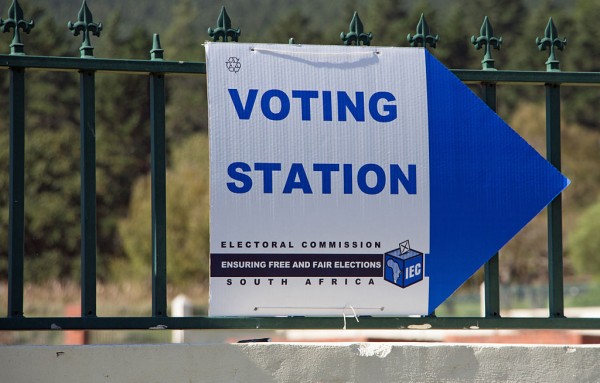
The Independent Electoral Commission (IEC) says all systems and preparations are in place for the institution to preside over the 2019 general elections.
Granville Abrahams, the senior manager responsible for election matters, said this when the IEC briefed the Parliament’s Portfolio Committee on Home Affairs at the Old Assembly in Cape Town on Tuesday.
In an interview with SAnews on the side-lines of his presentation to Members of Parliament, Abrahams said it was all systems go for the IEC to hold the national and provincial elections as the current term of the legislature comes to an end in May next year.
“In terms of the Constitution, the electoral commission has to deliver an election after the expiry of the term of Parliament and the provincial legislature.
“So all the planning and processes in place are geared to be ready for an election.
“So all planning and preparations are in place to ensure that we meet that obligation in terms the Constitution. So the IEC is ready in that respect,” he said.
In his presentation, Abrahams said following the recent voter registration weekend, which took place in March this year, the IEC is set to hold its final voter registration weekend in February 2019, after which the proclamation of the election date would be done by the sitting head of state, President Cyril Ramaphosa. He said this was expected to take place between February and March 2019.
While candidate nominations will take place between March and April 2019, it is expected that the election can take place between May and August 2019.
He said the IEC was currently awaiting for the finalisation of the Electoral Laws Amendment Bill that would, once approved, make a provision for the electronic registration of political parties and the electronic submission of party candidate lists.
The draft legislation also makes a provision for:
- Giving the Electoral Court a jurisdiction to hear and determine any matter relating to interpretation of the constitution concerning disputes about the legitimate leadership of the party;
- The possibility of electronic (online) registration by voters;
- To expand the potential venues for overseas voting; and
- Limit objections to a voters roll to a clearly defined window period in the election timetable as well as to establish a voting procedure for voters without addresses.
New apps to enhance voter registration, ballot paper tracking
Abrahams said there were several technology updates underway to pave the way for how several processes would be carried out.
This includes:
- A development of new applications for the new voter registration devices to be rolled-out;
- The development of a ballot paper tracking system to voting station level; and
- The enhancement of the online out-of-country and special vote application systems.
Abrahams said the current generation of hand-held voter registration devices, commonly known as zip-zaps, was procured in 2007 and have reached the end of their 10 years lifespan.
He said they had limited functionality and are no longer supported and that their software and hardware are out-dated.
A tender for the development and provision of 38 000 new generation voter registration devices ahead of next year’s elections was embarked on in 2017 and that the new device would provide for the capturing of the full details of the voter, including contact details and address.
Voter education
On voter education, he said provinces will soon employ municipal outreach coordinators and democracy education facilitators to commence their duties on 1 November 2018 and 1 January 2019 respectively.
Abrahams said following the March voter registration weekend, the voters’ roll currently stood at 75% and that the IEC hoped it would grow during the final voter registration weekend.
“We hope that in increasing the voters roll further, there will be another opportunity towards the beginning of next year and we hope that the bulk of the voters that still need to be registered will present themselves in achieving a higher percentage will predominantly be coming from the youth because that is a growing sector of this citizenship,” he said.
Glen Mashinini, the Chairperson of the IEC, said he would like to assure South Africans that the commission would, once again, deliver free, fair and credible elections as they have done in the past.
“What is special about the coming elections is that they will be representing a 25th anniversary of our first democratic election.
“We do expect that there will be, as we have seen with our democracy, robustly contested elections and we hope that we will be able to not let the country down and ensure that all the systems, competences and efficiencies that are commensurate with the responsibilities that would be carried out by us as the commission.
“We assure [South Africans] that we will not rest until we meet optimally our obligations to the country and its people and we are committed to ensuring that we deliver once more a free and fair and credible elections so that it continues to strengthen also the legitimacy of our elected representatives and the democracy of our country.”
https://www.africaprimenews.com/2018/02/27/elections/2019-elections-obtaining-permanent-voters-card-up-hill-task-in-kaduna-northwest-nigeria/